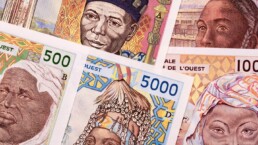Africa has a youthful population with approximately one-third of its population being 15-35 years of age. A country in the southern part of Africa, Zimbabwe has a large constituency of youth with over 75% of the population under 35 years. The 2012 National Population Census revealed that 76.8% of the population is under the age of 34. A total of 68.1% of this group are youth between the ages of 15 and 34. Despite being the biggest demographic segment, young Zimbabweans are also the largest untapped constituency when it comes to effective citizen participation as well as social and economic development. This means that a huge fraction of the population does not actively participate in national and local governance and development processes. This write-up seeks to explore the problems that result from the absence of youth participation in governance, policy and legislative processes in Zimbabwe as well as probable solutions to encourage greater participation.
The role of youths in the development discourse in Zimbabwe has been emphasized by the global community and international institutions which Zimbabwe is a signatory to. For instance, the UN has highlighted the role of young people in achieving the Sustainable Development Goals and the African Union’s Agenda 2063 has stressed the role of both women and youth in making the program inclusive, sustainable and achievable. The Constitution of Zimbabwe Section 20 (1) also points out that the State and all its institutions and agencies of government at every level must put in place measures, including affirmative action programs, to ensure that youth (15-35 years)
(a) have access to appropriate education and training
(b) have opportunities to associate with, be represented and participate in political, social, economic and other spheres of life.
Of particular interest in the above extract from the supreme law of the land is subsection (1b) which says youth must be represented and participate in socio-economic and political spheres of life. In Zimbabwe however, even with the backing of the law, the youth are significantly restricted by the older generation who are reluctant to relinquish power and delegate more political authority to the youth. The youth thus have very little room to act or engage actively in the political process which seemingly has been hijacked by the older generation. This phenomenon greatly undermines the popular dictum, “The youth are the future leaders” which ironically is constantly trumpeted by the older generation. The youth however are rarely given the opportunity to practice to be leaders or be leaders.
Statistics from Zimbabwe Electoral Commission (2018) suggest that out of 5.69 million registered voters, only 44% constitute youth between the ages of (18-34). This is problematic because 75% of the population is made up of young people and the constant marginalization of this demography from the election process inhibits other youth with potentially better leadership qualities from being voted into any political office. This is because the older generation who constitute the bulk of registered voters are mostly reluctant to vote the youth into any political office.
Additionally, voter apathy continues to be a major problem in Zimbabwe, due to a number of reasons, including failed attempts to depose the ZANU PF government, the large-spread belief that elections are rigged, and lack of knowledge about the importance of participation in elections.
Young people’s participation in governance processes particularly in the electoral process is one of the means through which democracy in the country can be entrenched and transparency and accountability achieved. Though elections constitute one of the most important benchmarks towards participation in development, participation of young people in Zimbabwe is still very low and least impactful. What this means is that young people’s voice and views are not heard and the country is run mainly by leaders who largely do not have the requisite capacity to lead and transform the economy.
The key issue for young people in Zimbabwe is the ability and capacity to be involved in the decision-making process that informs policy interventions. For them, one of the main criteria on which people should be allowed to participate in the political process is a basic level of knowledge and capacity so that participation in essence is well informed, structured and relevant to the issue or sphere in question. This alone justifies the need for a broad base for participation to be created for the youth. This however is not the case in Zimbabwe. Young people are generally excluded from the planning, implementation, monitoring and evaluation of programs, interventions and policies that ultimately are meant to benefit them and this has several negative consequences.
Effects of low participation by youth:
- Low political participation by younger people who are in the majority has contributed to the older generation still clinging to power after several years and the current crop of leaders have failed to transform the economy. Youth unemployment is rife in both urban and rural communities which has sparked massive migration to neighboring countries like Botswana, South Africa and Namibia. Active youth participation premised on knowledge in governance and ongoing engagement with leadership and governance processes can potentially hasten the transformation of the country for the realization of the socio-economic and political progress needed to improve conditions and living standards of the Zimbabwean people.
- Also, low youth participation in governance processes like budget allocation and monitoring meetings leads to uneven distribution of the country’s wealth. Natural resources are looted and exploited by the elite or the ruling class. That has been the case in Zimbabwe where the ruling class has continuously exploited resources and used state wealth to fund their personal projects at the expense of the general public.
- The ruling party for the past 38 years has implemented policies which enrich themselves and their families. The 2013 Indigenization Act, which called for foreign owned companies to cede 51% to the government has done more harm than good in terms of investment and job creation in the country. The 51% which was being taken by the government did not contribute anything to the welfare of the ordinary citizens.
Obstacles to youth participation:
Intimidation: during the last elections, Zimbabwe fell into spates of violence and intimidation. Ordinary citizens were intimidated by state security agents and coerced to vote for the ruling party. This has caused young people to shy away from activities which relate to politics because the government would regard any opposition to the ruling party as a statement of enmity against the state.
Lack of Freedom of Speech and gathering: the laws governing the country are an impediment to young people’s participation in governance. Lack of freedom of gathering and freedom of speech are typical examples. Instruments like the Public Order and Security Act (POSA) and Access to Information Protection of Privacy Act which were introduced to make sure that people do not gather and discuss issues without clearance from the police is equally problematic. According to Newsday (2018) the twin statutes of POSA and the Access to Information and Protection of Privacy Act (AIPPA) have no place whatsoever in a democracy, as they stifle civil liberties and people’s freedom of expression, quite contrary to principles of constitutional democracy.
Lack of knowledge: most young people in the rural areas, lack knowledge about the importance of participation in governance processes in the country and how it affects the economy, and the well-being of the country. Robust education and training to encourage the effective participation of the youth is needed. It is equally important to utilize effective affirmative system for youth in leadership positions much in the same way this has been used as an empowerment tool for women in leadership.
Lack of transparency: the history of elections in Zimbabwe shows that there is no transparency in the conduct of elections in the country. That has caused most young people to lose faith and motivation to participate in them. Elections have been marred by massive rigging and lack of freedom of media and does not meet global standards.
The following actions can be actively pursued as a step toward addressing some of these obstacles to active youth participation in the decision-making and governance process in Zimbabwe:
- Provision of leadership training
- Pro- youth policies
- Effective engagement in productive activities
- Freedom to participate in politics and development without restrictions.
The views expressed in this article are those of the author alone and not the Future Africa Forum.
The views expressed in this article are those of the author and do not necessarily reflect the views of Future Africa Forum. Future Africa Forum is a pan-African policy think-tank and policy advisory consultancy headquartered in Nairobi, Kenya.



